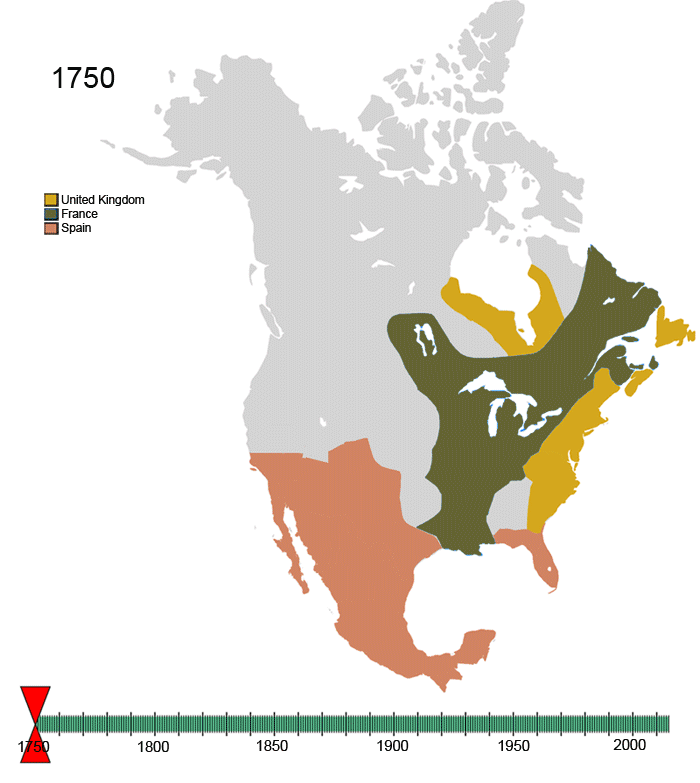You don’t measure vulnerability by the amount of disclosure. You measure it by the amount of courage to show up and be seen when you can’t control the outcome.
Brené Brown, The Call to Courage
The dominant narrative in contemporary Canadian society is that prejudice is a thing of the past. That racism ended with the U.S. civil rights movement, sexism with sexual liberation, and colonialism with confederation. These myths prevail even as the facts disproving them shout in our faces.
This dissonance between perception and reality is of little surprise given that these narratives around prejudice are driven by the political landscape, executive boards, and media – all of which are currently dominated by affluent white men*. Theirs isn’t a malicious role so much as reflective of the smallness of their shared experience. But it takes more than affluent white men increasing awareness to change things; it takes institutions and organizations looking like the people they serve in substantive numbers at the highest echelons. There can be no tangible improvement as long as affluent white men make up the majority of decision makers.
In the end, a lot of prejudice isn’t fueled by hate, but by discomfort, and only with vulnerability can it be addressed meaningfully. Though discomfort is more innocuous-sounding than hate, actions (or lack thereof) rooted in discomfort can be indistinguishable in their cruelty and harm done to those motivated by hate.
Discrimination is normalized
Before going further it’s worth listing some of the discrimination that is normalized in the current climate. The threshold for acceptability into unacceptability seems to be the point where today’s affluent white men* would immediately benefit from its resolution.
For some examples of marginalization, let’s look at how women are excluded from positions of influence:
- In the 42nd parliament (2015-2019), only 26% of MPs are women. Male perspectives define the legislature.
- In 2018, of the top 100 companies on the S&P/TSX Composite, only one of them had a woman CEO. Men dominate executive boards.
- In 2018, 148 women and girls are killed in Canada. 90% of their killers are men. In Toronto, a self-proclaimed incel targets women in a mass murder. Women are harassed by men for simple activities like walking down the sidewalk.
- As of 2016, women in Canada earn 69 cents for every dollar earned by men. Men are paid more for doing the same job with the same qualifications as women.
- In 2019, only 11% of Canadian software developers are women. The story is much the same across all high paying jobs.
- In 2018, less than a quarter of Oscar and BAFTA nominees are women. Speaking roles are disproportionately given to men and films continue to fail the Bechdel test (do two women talk to each other about something other than a man).
- In 2016, the US President is elected despite taped admissions that he sexually assaulted women (“grab them by the pussy“), cheated on his wife multiple times (also caught on tape), and openly hurled misogynistic insults to prominent women (“blood coming out of her wherever“).
Muslims in Canada also experience significant hardships:
- In 2018, 25% of Canadians believe that the country would be better off with no Muslims. They are openly vilified by mainstream Canadian politicians, news organizations and on radio.
- Anti-Muslim groups La Meute, Proud Boys, Northern Guard, Worldwide Coalition Against Islam, and Soldiers of Odin are openly demonstrating in major cities like Vancouver, Ottawa, Montreal, Quebec, Toronto, Halifax and Edmonton. One major political party is courting their votes and some local politicians share their ideology.
- In 2017, a mass shooter kills 6 worshipers at a Quebec City mosque.
- In 2017, the Quebec government implements a ban on face coverings, designed to prevent women from accessing public services and obtaining jobs in the public sector if they are visibly Muslim.
- In 2017, the United-States implements a “Muslim ban”. The official explanatory statement: “Donald J. Trump is calling for a total and complete shutdown of Muslims entering the United States“.
- In 2019, a mass shooter kills 50 worshipers in a Christchurch mosque. The killer praises Trump as a “symbol of renewed white identity and common purpose“. On his firearm’s magazine, he writes the name of the Quebec City mosque shooter.
Then there is the genocide of indigenous peoples in North America perpetrated by successive governments. We are still in the middle of that story:

- Indigenous people had their land invaded and taken from them by successive colonial governments across North America. The Canadian government operated in bad faith to further take land from indigenous people, and in 1927 made it illegal for indigenous people to challenge the government in court including over land claims. Through disease, starvation and warfare directly stemming from European settlement and practices an estimated 75-95% of indigenous people were killed by the time of confederation.
- For the indigenous people that remained, the Canadian government had a policy to extinguish their culture by forcibly taking indigenous children away from their parents for assimilation, using law enforcement to ban ceremonies, and legally mandating the band system of governance for the purposes of assimilation. The Potlach ban lasted for seventy years until 1951 and residential schools for a century until 1986. Though residential schools ended, children are still forcibly taken by the government. In Manitoba, 10,000 of the 11,000 children in foster care were indigenous.
- The actions of the government have had a devastating impact on indigenous communities. 80% of reserves have median incomes below the poverty line and two-thirds of indigenous communities have gone without clean water. In 5 years, 582 indigenous women were murdered or missing. Police in cities like Thunder Bay ignore these deaths even as the settlers that kill indigenous people to amuse themselves walk free in their municipality.
- Meanwhile, sports teams are named after slurs for indigenous people and the Liberal prime minister cracks jokes in the face of indigenous advocates speaking their pain. Conservatives are no better, with their politician on Aboriginal people’s committee praising the residential schools, denying that racism exists, and blaming indigenous people for poor outcomes.
- To this day, the Canadian government refuses to treat indigenous peoples as equal partners. In 2007, the UN Declaration on the Rights of Indigenous Peoples is adopted with 144 nations voting in favour. Canada was one of the only four nations to oppose the declaration. In 2018, the private member’s Bill C-262 is introduced by NDP Romeo Saganash to harmonize laws with the declaration. As of the time of this writing, it looks likely to be killed by delay.
This does not have to be our reality. We could be on the path to reconciliation, work to end sexism in a tangible way, and treat all faiths with equal respect. It just takes people in the right positions choosing differently. They do not.
The reasons are twofold: the affluent white men* in decision making positions don’t have to and don’t want to. The don’t have to part is easy enough: they are not personally negatively impacted by this discrimination, the people they are accountable to don’t ask for it, and there’s no legislation to mandate it. As change carries risk of losing eminence, maintaining the status quo is more desirable.
Then there’s why they don’t want to. There is one class of people who don’t believe there are widespread experiences of discrimination. They persevered and were able to make it, and so if others did not have the same outcome, it’s attributed to character. They are not inclined to appreciate the additional barriers specific to separate groups. This class is not the focus of this article.
There is a second class of people who do believe discrimination exists but are unwilling to make the decisions that would challenge it. Members of both classes share the belief that they personally would be worse off were they to push for this change. The former because they don’t want the world this change would bring. The latter because pushing has consequences. Either way, the end result is the same.
It is this second class which believes prejudice exists and is morally wrong but make successive decisions to uphold it that is the focus of this article.
Acknowledging the cost
For affluent white men*, doing the right thing has a cost. Money spent on accessible entrances, washrooms and spaces means less money spent on them. Inclusive hiring practices means more restrictions on how they behave. Respecting indigenous sovereignty means they can’t operate unilaterally. Gender balanced executive boards mean less job openings for them. They give up something.
Even smaller gestures, like friends speaking up when hearing a joke that belittles a group of people, or teachers openly vocalizing for a GSA in a Catholic school that’s opposed them, lose something by doing so. Maybe it’s the esteem in which they’re held. Maybe it’s the work environment. They feel uncomfortable.
Bearing these costs is a very difficult proposition for affluent white men* to accept when doing so is entirely voluntary. It predisposes them to stand back, be silent, and presume others will carry out the change in a kind of bystander effect.
Change requires losing control on outcomes
It’s difficult for affluent white men* in decision making positions to accept a cost when they don’t have to. It’s even harder to accept when they can’t predict what the cost will be. What would their life look like if decision makers in the government stopped perpetrating this slow-motion genocide against indigenous people? What would their life look like if decision makers in companies decided that half of managers should be women? Or more immediately, what would their work environment look like if they spoke up when their colleague made a sexist joke?
For tangible change to happen, these men need to be okay with being vulnerable. As Brené Brown put it in that opening quote, that means doing things knowing the outcome can’t be controlled. It’s scary and a reality that those on the receiving end of discrimination know too well. They have no choice. That vulnerability is foisted upon them every day.
Discrimination will continue for generations because decision makers preserve their sense of safety by keeping to insignificant changes or voicing support only in the company of like-minded individuals. Only when they accept to be uncomfortable and assume the cost of doing what they know is right will they be able to say that they stood up to prejudice.
In the end, we will remember not the words of our enemies, but the silence of our friends.
Martin Luther King, The Trumpet of Conscience
*Specifically affluent, Christian heritage, white, settler, able-bodied, straight, cisgender, men who own a car and a house. Or individuals who fit eight out of ten criteria.
